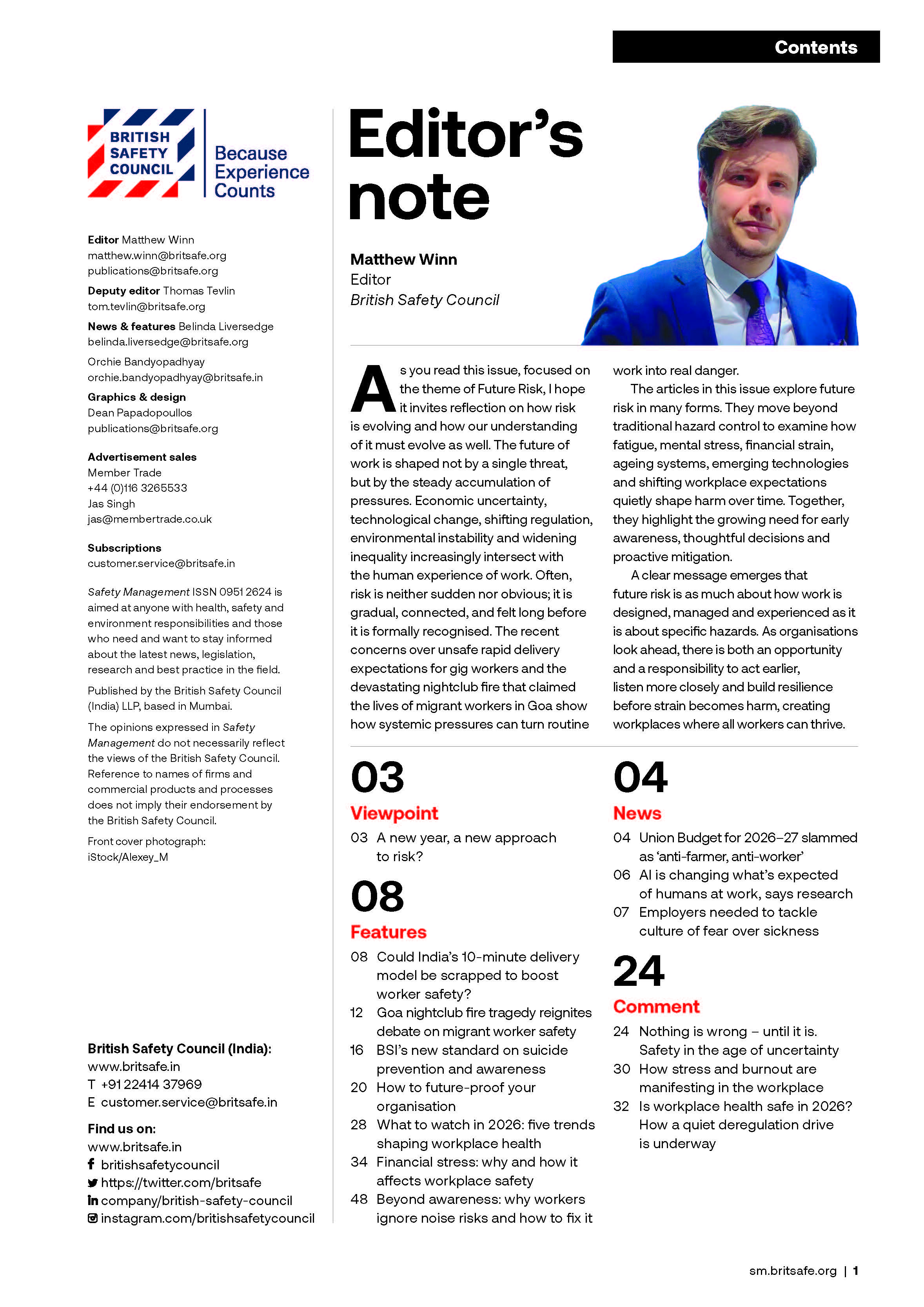The practice of female sugarcane workers in Maharashtra state undergoing unnecessary hysterectomies, in part driven by a financial need to avoid sick days due to menstrual problems and pregnancy, still persists, allege campaigners, despite a state government-commissioned report in 2019 urging greater action to eradicate it.
Features
A bitter harvest: female sugarcane workers ‘pushed’ into having hysterectomies
A growing scandal has emerged in Maharashtra’s Beed district, one of major suppliers of female labourers to sugarcane farms in the states of Maharashtra, Karnataka, Telangana and Andhra Pradesh, in recent months and years. In the last decade, thousands of women in the district of Beed have reportedly undergone hysterectomies, driven by factors such as a personal need to avoid pregnancy and common health issues, such as painful periods, in order to continue working to earn money; unscrupulous labour contractors encouraging female workers to undergo the procedure by offering loans to pay for it; and unscrupulous medical professionals in private clinics advising unnecessary hysterectomies to boost their income.
In fact, a recently published official health department report revealed that in late 2024, 843 women from Beed allegedly underwent hysterectomies before migrating for seasonable agricultural work in India’s sugarcane harvesting areas. Shockingly, 477 were between the ages of 30 and 35, an unusual age to undergo the procedure, which involves the removal of the uterus.

The issue first came to public attention in 2019, after an inquiry commissioned by the Maharashtra Government, following pressure from workers’ and women’s rights campaigners, found that out of 82,309 women sugarcane workers surveyed in Beed, about 13,861 (nearly 17 per cent) had undergone hysterectomies.
The inquiry, led by the deputy chairperson of the Maharashtra legislative council, Dr Neelam Gorhe, also found that the rate of hysterectomies among women from Beed was 36 per cent compared with a national average of three per cent. However, campaigners believe the actual numbers and percentages of women from locations like Beed that have undergo often unnecessary hysterectomies could be much higher.
Number of factors
Activists say there are a number of factors driving the high rate of hysterectomies among the sugarcane workers, with many of the procedures seemingly having been carried out without any genuine medical grounds or reasons.
Sugarcane cutters are generally hired in pairs – popularly known as 'jodis', comprising of a husband and a wife, and jodis are expected to cut 2–3 tonnes of cane in a day. They are typically hired and paid by middlemen, known as ‘mukadams’, who receive a commission from the sugar factories, ranging from 15–25 per cent of the amount for which a married couple is hired.
Workers are usually given a lump sum wage advance by the mukadum of around Rs 1 to Rs 1.5 lakh for the six-month harvesting season, and then work for the agreed period to ‘pay off’ the advance.
However, the workers are not entitled to sick leave or sick pay during the harvesting period, partly because the mukadum insist on workers completing all the pre-paid work days, and also because of lax enforcement by local authorities of labour laws covering rights to minimum wages, sick leave and sick pay.
As a result, if workers take time off – for example, because of pregnancy, miscarriage, period pains, gynaecological problems, such as uterine cysts, or to attend medical appointments – they must compensate the contractor. Although the workers can earn around Rs 250–300 per day, if they take time off, whether a half or full day, they face fines from the contractor varying from Rs 500 to Rs 1,000 per day, which is much higher than their equivalent daily earnings. The sugar mill owners have no involvement in the payment of wages, and argue that the employment relationship is between the mukadams and the workers,. However, campaigners say this allows the mukadams to levy the unfair penalties for work absence, demanding the payment of unreasonable fines.
At the same time, if the work comes to an end before the agreed contract period due to low sugarcane production levels, the workers have to return part of the advance to the mukadams.
However, if workers are unable to pay any penalties levied for sickness absence, or repay sums owed because the contract has ended early, they are often held in ‘debt bondage’, required to carry out other work for the mukadam until the debt is repaid. Debts are sometimes also carried over to the following year, when the workers are forced to return for the subsequent year’s harvest, and spend a portion of the time during the following year's harvest working to repay the previous year’s debt.
Campaigners say that, as a result, when female workers develop gynaecological problems, they feel discouraged from taking time off to seek medical help. Also, workers usually lack the money to pay for medical care for gynaecological issues and problems like urinary tract infections, and borrowing money from the mukadams is often the only option to raise the necessary funds.
As a result, female workers are often tempted to undergo non-essential hysterectomies to address these kinds of health issues, as this avoids the loss of wages from sickness absence and the need to borrow money to pay for ongoing medical care for common gynaecological problems that can often be treated without the need for the drastic option of a hysterectomy.
Strenuous work
The strenuous nature of the work, with female workers gathering, carrying and lifting large sacks of cane, and the long working hours and poor living conditions, means that female workers are more prone to aches and pains, including problems like period pains. The sugarcane workers also often lack access to hygienic toilets, clean water and menstrual hygiene aids, which increases the risk of infection. All of these factors increase the risk of gynaecological problems and health conditions like urinary tract infections.
In addition, workers who have already had children sometimes face pressure from their husbands and families – to whom they often send some of their wages – to undergo a hysterectomy, in order to avoid future pregnancies that could prevent them working in the sugarcane fields, despite there being no medical need for the procedure, and them sometimes being of a relatively young age.
Activists also say the mukadams often pressure female workers into undergoing hysterectomies, to ensure they are able to continue working, by avoiding pregnancy and menstrual problems. They offer loans to pay for the surgery, which further traps the women in debt and forces them to continue working to repay the sums borrowed.
Reports suggest hysterectomy surgery from a private doctor costs anything between Rs 25,000 and Rs 30,000, which the women must then repay by working for the contractor.
There are also reports of unscrupulous private doctors and medical practices encouraging female sugarcane workers to undergo unnecessary hysterectomies, in order to boost their income. Campaigners say they have uncovered evidence of women seeking medical assistance for gynaecological problems such as uterine cysts, where private doctors have erroneously told the women they were at immediate risk of cancer, and urged them to undergo a hysterectomy, which the women then agreed to pay for, fearing for their lives.
Media reports suggest that in most towns and villages in Beed district, one woman per household has had a hysterectomy.
Health problems
However, reputable doctors warn that the removal of a woman’s uterus, especially under the age of 40, can increase the risk of short- and long-term health problems. The short-term problems include abdominal pain, and the woman may also develop urinary incontinence and suffer pelvic floor prolapses. When a hysterectomy also involves removal of the ovaries, this can trigger early menopause, raising the risk of serious health problems like heart disease, effectively shortening the woman’s life expectancy.
Reflecting on her own experience, Savita, a farmer and mother of two, says she was only 28 when she underwent a hysterectomy. “It’s about survival,” she explains. “I started working in the sugarcane fields after marriage. Although my family owns a small plot of land, water scarcity has made cultivation impossible.
“There were days when we had to go hungry to bed or survive on one jowar roti and pickle. Then I started working as a sugarcane cutter with my husband. I opted for a hysterectomy because I needed to work long hours and earn. My husband also supported my decision, because period pain affected my work. Also, mukadams usually don’t hire menstruating women as they believe that women may end up taking frequent breaks while cutting sugarcane.”
Savita, who is now 35, adds that after the procedure, she did gain weight, “but I was more productive in the field and was able to haul heavy bundles of crop with no worries of any menstruation or pregnancy”.
Seasonal migration
In the district of Beed, many small and marginal farmers and their families migrate to the sugar belt of Western Maharashtra, Karnataka, Telangana and some parts of Andhra Pradesh, to work as sugarcane cutters and earn money during the harvesting season.
In fact, Beed is the region of Maharashtra state where the largest number of sugarcane workers normally reside and migrate from in search of work. Out of the estimated one million sugarcane cutters in the state of Maharashtra, approximately half of them are thought to come from Beed. The primary reason for the annual, seasonal migration is the persistent drought-like situation in the Beed region, combined with the underdevelopment of the area’s farm sector.
As a result, smallholder farmers, who form a large part of the agricultural sector in Beed, often require help to deal with water scarcity, climate change and fragmented land holdings. This limits their ability to provide for their families and secure profitable harvests, driving them to migrate to the sugarcane fields.
“Despite having pieces of land, farmers are unable to cultivate anything due to a lack of development of the agriculture sector," explains Dr Bharat Patankar, co-founder of Shramik Mukti Dal, a political organisation that seeks to organise farmers, agricultural labourers and people evicted from their land for dam building projects to protest against the impact on their lives and livelihoods from problems like drought and land evictions for dam construction. “Alternative employment is also missing, and that compounds the problem.”
Patankar adds that impoverished communities, such as the Banjara and Vanjari tribes, account for a substantial majority of the sugarcane cutting workers in Maharashtra state.
A sugarcane cutter’s job during the harvest season, which is between October and March, involves cutting, collecting and bundling cane. A typical workday begins at 04.00am and stretches till 7.00pm, with only a one-hour break for lunch.
Once cut and collected, the heavy cane bundles – weighing 30–40kg – are carried by workers on their heads and loaded onto tractors or trucks for transport. Workers are required to climb makeshift steps propped against the trucks to load the material, while carrying the cane bundles on their heads. This is particularly risky for women, given they generally lack the physical strength of men. Accidents and injuries are common, as the ground below is slippery, uneven and littered with sharp objects or insects, posing a risk to workers’ safety.
Profitable crop
Sugarcane is one of the most profitable cash crops for farmers across large parts of India, and this has driven chronic over-cultivation. In 2021–2022, India surpassed Brazil to become the largest sugar producer in the world, producing 35.9 million tonnes – an all-time high. However, campaigners argue the industry is having a devastating impact on the migrant workers and their families – for example, because weak enforcement of labour laws means contractors can refuse to pay sick leave, and demand fines from workers for sickness absence, which is driving women with menstrual and gynaecological problems to needlessly seek hysterectomies.
In the sugarcane fields, the labourers from Beed live in makeshift shelters with no sanitation facilities.
According to a report by Oxfam India, “the tents are small and inadequate to give complete shelter” and “do not have water, electricity supply or toilets”.
Campaigners add that sugarcane cultivation is an extremely water-intensive process, meaning scarce groundwater supplies are being divrted for crop irrigation, rather than for essential use by
the population.
Lack of progress
The 2019 report from Dr Neelam Gorhe, commissioned by the Maharashtra government, contained a number of recommendations aimed at eradicating the practice where female agricultural labourers from Beed and other areas are encouraged or coerced into unnecessary hysterectomies by family, sugarcane labour contractors and unscrupulous doctors.
The recommendations – which were made to the state’s health minister and the state’s sugar regulator – included ensuring sugarcane harvesting workers in Maharashtra are provided with suitable toilets and clean running water to ensure the female workers can achieve better personal sanitary and menstrual hygiene care; and ensuring workers receive minimum wages. However, activists say progress in ensuring the provision of welfare and sanitary facilities for female workers on the sugarcane farms – and stepping up enforcement action to ensure labour contractors are complying with minimum wage laws – has been painfully slow.
Gorhe’s report also led to the development of medical guidelines for hysterectomies in Maharashtra state, under which private hospitals and clinics must seek approval from public hospitals before conducting these procedures, to ensure there are genuine clinic grounds for the operation.
However, while the number of hysterectomies carried out in the state in recent years has reportedly fallen – suggesting the measure is in part having the desired effect – there is evidence suggesting some smaller private clinics continue to encourage unnecessary hysterectomies, either due to financial greed or inadequate medical knowledge.
Workers’ rights activists are therefore calling on the Union and Maharashtra governments to take stronger action to prevent exploitation of both male and female sugarcane workers by unscrupulous labour contractors and medical professionals. They are calling for improvements to working conditions and labour rights and further action to eliminate the practice of female workers feeling the need to seek – or being pressurised into – undergoing often unnecessary hysterectomies.
In particular, they want to see improved regulation of the activities of the sugar labour contractors, such as stronger enforcement of minimum wage laws, stopping contractors levying fines on workers for sickness absence and ensuring workers are provided with sick pay, all of which would in theory reduce the financial pressure on female workers to under hysterectomies. They also want to see greater oversight and inspections of private medical clinics to ensure hysterectomies are only carried out when there is a genuine medical need.
Referring to the recently released official report suggesting that large numbers of female sugarcane workers from Beed allegedly underwent hysterectomies in late 2024, an activist warned: “The latest data has reignited urgent calls for regulatory oversight, improved public healthcare and stronger protections for women in the informal workforce.”
FEATURES

India’s 10-minute delivery model: why working conditions could be about to improve
By Orchie Bandyopadhyay on 13 February 2026
India’s ‘10-minute’ quick-commerce home delivery model has been criticised for allegedly encouraging reckless riding by delivery workers, but the Government has now reportedly stepped in to urge the app platforms to abandon the time-bound delivery promise and do more to ensure the safety of the sector’s workers.

Migrant workers: Goa fire tragedy reignites debate on poor safety protections
By Orchie Bandyopadhyay on 13 February 2026
A deadly fire at a nightclub in Goa that claimed the lives of 20 migrant workers from across India made global headlines – and triggered fresh demands for government agencies to step up efforts to ensure the safety of low-paid workers in environments such as bars, nightclubs and hotels.




